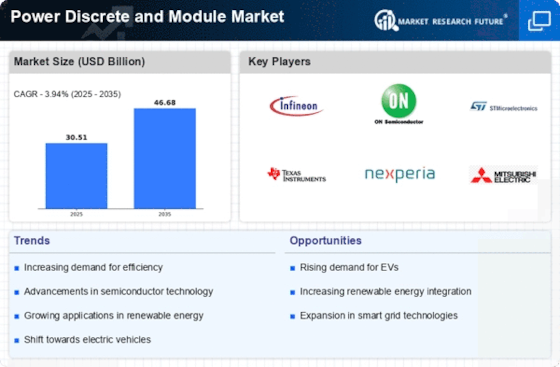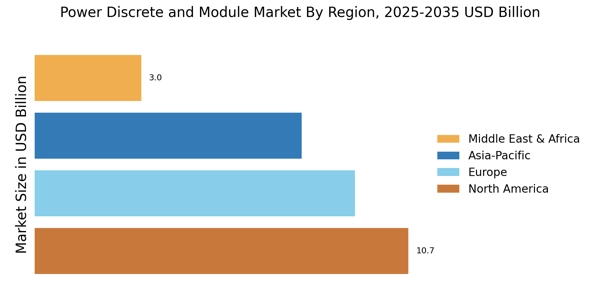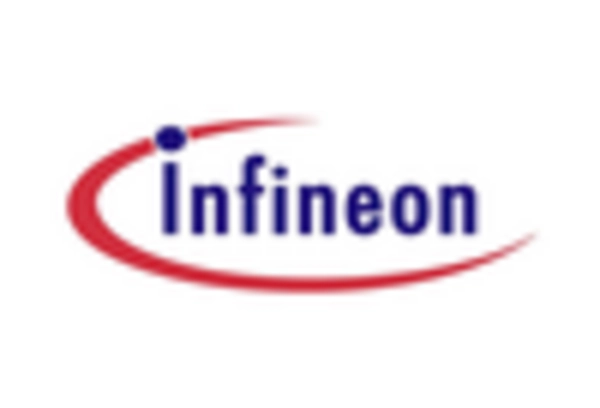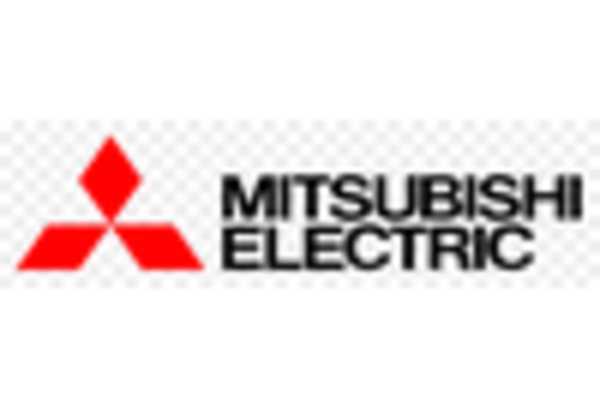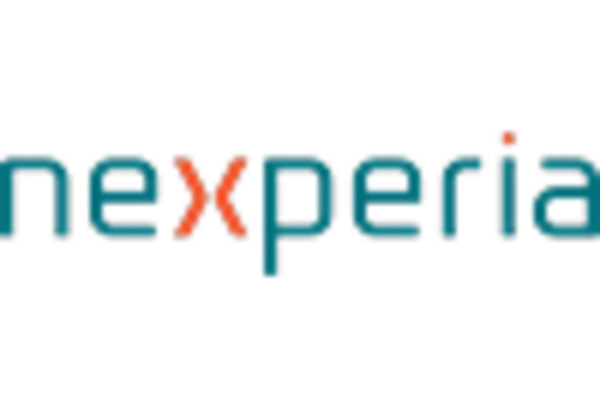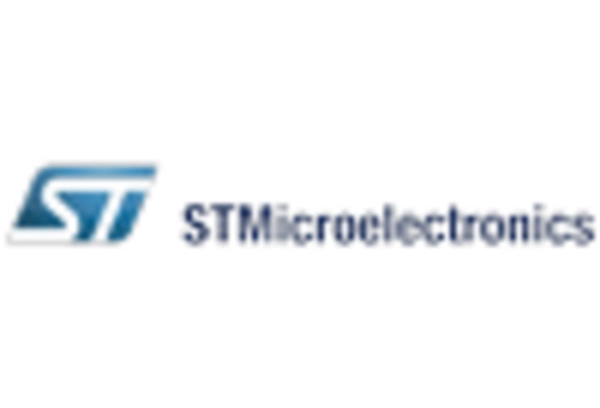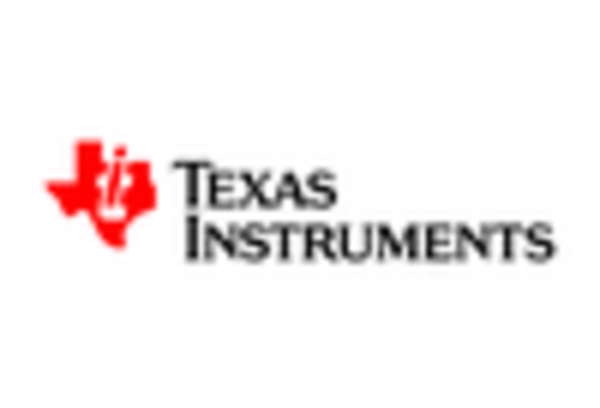Growth of Smart Grid Technologies
The Power Discrete and Module Market is poised for growth due to the increasing implementation of smart grid technologies. Smart grids facilitate improved energy distribution and management, leveraging advanced communication and control systems. Power discrete components are essential for the operation of smart grids, as they enable efficient power conversion and distribution. In 2025, investments in smart grid infrastructure are projected to rise, driven by the need for reliable and resilient energy systems. This trend is likely to enhance the demand for power modules that support the integration of renewable energy sources and energy storage solutions, thereby fostering growth within the Power Discrete and Module Market.
Surge in Renewable Energy Adoption
The Power Discrete and Module Market is experiencing a notable surge in the adoption of renewable energy sources, such as solar and wind. This shift is driven by increasing environmental concerns and government incentives aimed at reducing carbon emissions. As countries strive to meet their renewable energy targets, the demand for power discrete components, which are essential for converting and managing energy, is expected to rise. In 2025, the renewable energy sector is projected to account for a significant portion of the global energy mix, further propelling the growth of the Power Discrete and Module Market. The integration of advanced power modules in renewable energy systems enhances efficiency and reliability, making them indispensable in modern energy solutions.
Rising Demand for Consumer Electronics
The Power Discrete and Module Market is experiencing a rise in demand driven by the growing consumer electronics sector. As technology advances, consumer electronics are becoming more sophisticated, requiring efficient power management solutions. Power discrete components are critical in ensuring that these devices operate effectively while minimizing energy consumption. In 2025, the consumer electronics market is expected to expand significantly, with projections indicating a surge in demand for devices such as smartphones, tablets, and smart home appliances. This growth is likely to stimulate innovation within the Power Discrete and Module Market, as manufacturers strive to develop components that meet the increasing performance and efficiency requirements of modern electronics.
Advancements in Electric Vehicle Technology
The Power Discrete and Module Market is significantly influenced by advancements in electric vehicle (EV) technology. As the automotive sector transitions towards electrification, the demand for power discrete components, such as IGBTs and MOSFETs, is on the rise. These components play a crucial role in the efficient operation of EVs, managing power conversion and distribution. In 2025, the electric vehicle market is anticipated to grow substantially, with projections indicating that EV sales could reach millions of units annually. This growth is likely to drive innovation in the Power Discrete and Module Market, as manufacturers seek to develop more efficient and compact solutions to meet the evolving needs of the automotive industry.
Increasing Demand for Energy Efficiency Solutions
The Power Discrete and Module Market is witnessing an increasing demand for energy efficiency solutions across various sectors. As industries and consumers alike seek to reduce energy consumption and lower operational costs, the need for advanced power management systems becomes paramount. Power discrete components are integral to these systems, enabling better control and optimization of energy use. In 2025, energy efficiency initiatives are expected to gain momentum, supported by regulatory frameworks and consumer awareness. This trend is likely to create new opportunities within the Power Discrete and Module Market, as companies innovate to provide solutions that not only enhance performance but also contribute to sustainability goals.

